Eyes on the sea in Truong Sa Archipelago
The lighthouse on Truong Sa Lon Island and 8 others in Truong Sa Archipelago are not only beacon for ships passing at night, but also confirm the sovereignty over the sea and islands of Vietnam. These lighthouses are never turned off, because they are lit up by the patriotism of soldiers in Truong Sa.
One day we visited the lighthouse station on Truong Sa Lon Island where we met Vu Sy Luu, a native of Hai Phong, who has worked at the lighthouse for 20 years. Luu is now the head of Truong Sa Lon Island’s lighthouse station.
The man with a small and thin figure and suntanned skin shared with us his and others silent work in the lighthouse station. In 1993, Luu was one of the first soldiers who was sent to Truong Sa Archipelago to station the lighthouses.
At that time, the whole system of lighthouses in the archipelago was lit by batteries so the lamps sometimes flickered like the tip of a cigarette. Furthermore, the conditions were so poor that the lighthouse workers like Luu had to do all the maintenance by themselves. However, the tremendous difficulties during that period did not discourage them.
At present, the living conditions at the lighthouse have improved, but their job is still very hard. The lighthouse is equipped with a system of lamps using solar power, however, to keep it ‘lit’, the lighthouse workers have to work all day and night in an extreme environment. They have regular contact with battery acid and toxic substances.
Whether sunny or rainy, calm or stormy, in any circumstances or conditions, the lighthouse is never turned off. That is the rule, because it is the rhythm and the life of the island.
The job of the lighthouse workers contains silent sacrifices. They regularly clean and conduct maintenance on the lighthouses in extreme climatic conditions, while regularly training to be ready to protect the lighthouses when necessary.
Because of the sea water, the lighthouses are often rusty. The lamps can short circuit if not maintained regularly. In the burning sunlight and rough wind, the workers have to climb up the lighthouse for maintenance. At that height, it is easy to have an accident at any time.
When we prepared to leave the lighthouse station on Truong Sa Lon Island, Luu said: “Our work is only with these lighthouses” that made us understand that they are silently sacrificing their youth to make the lighthouses illuminate forever over the sea of their country.
One day we visited the lighthouse station on Truong Sa Lon Island where we met Vu Sy Luu, a native of Hai Phong, who has worked at the lighthouse for 20 years. Luu is now the head of Truong Sa Lon Island’s lighthouse station.
The man with a small and thin figure and suntanned skin shared with us his and others silent work in the lighthouse station. In 1993, Luu was one of the first soldiers who was sent to Truong Sa Archipelago to station the lighthouses.
At that time, the whole system of lighthouses in the archipelago was lit by batteries so the lamps sometimes flickered like the tip of a cigarette. Furthermore, the conditions were so poor that the lighthouse workers like Luu had to do all the maintenance by themselves. However, the tremendous difficulties during that period did not discourage them.
At present, the living conditions at the lighthouse have improved, but their job is still very hard. The lighthouse is equipped with a system of lamps using solar power, however, to keep it ‘lit’, the lighthouse workers have to work all day and night in an extreme environment. They have regular contact with battery acid and toxic substances.
Whether sunny or rainy, calm or stormy, in any circumstances or conditions, the lighthouse is never turned off. That is the rule, because it is the rhythm and the life of the island.
The job of the lighthouse workers contains silent sacrifices. They regularly clean and conduct maintenance on the lighthouses in extreme climatic conditions, while regularly training to be ready to protect the lighthouses when necessary.
Because of the sea water, the lighthouses are often rusty. The lamps can short circuit if not maintained regularly. In the burning sunlight and rough wind, the workers have to climb up the lighthouse for maintenance. At that height, it is easy to have an accident at any time.
When we prepared to leave the lighthouse station on Truong Sa Lon Island, Luu said: “Our work is only with these lighthouses” that made us understand that they are silently sacrificing their youth to make the lighthouses illuminate forever over the sea of their country.
 The lighthouse on Truong Sa Lon Island is 25m high so ships, about 18 nautical miles away, can see the light. The lighthouse lamp is regularly maintained. 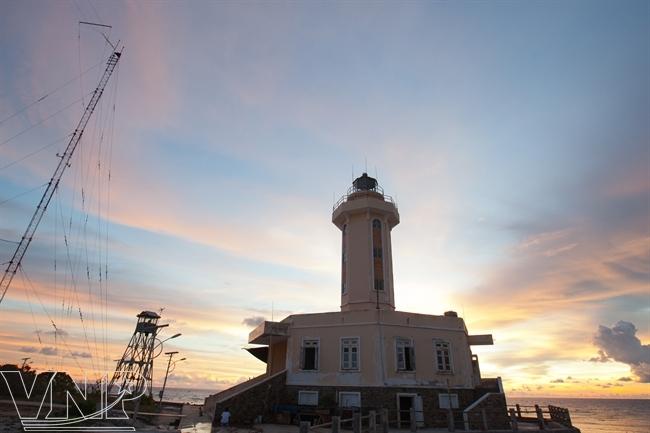 The light house is built with the octagonal shape, looking to the East Sea. 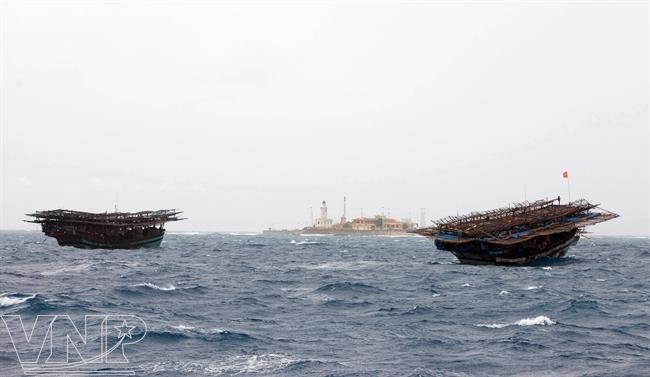 The lighthouse is not only a beacon for ships passing at night, but also confirms the sovereignty over the sea and islands of Vietnam. 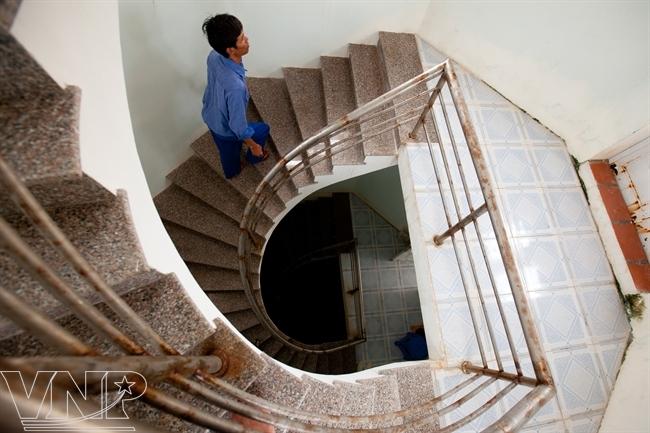 The spiral shaped stairs of the lighthouse is paved with granite. 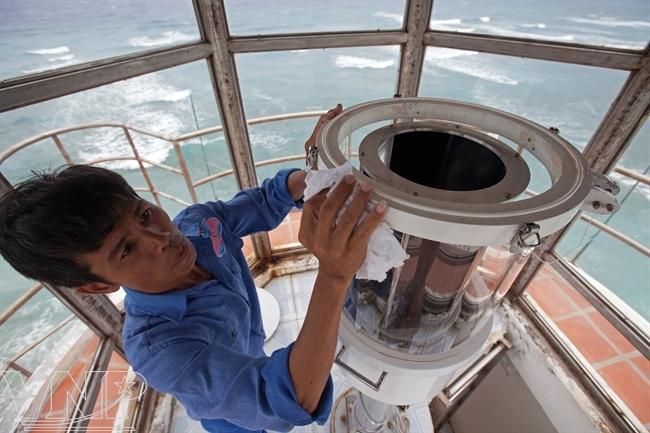 The lighthouse lamp is regularly maintained. The lighthouse lamp is regularly maintained.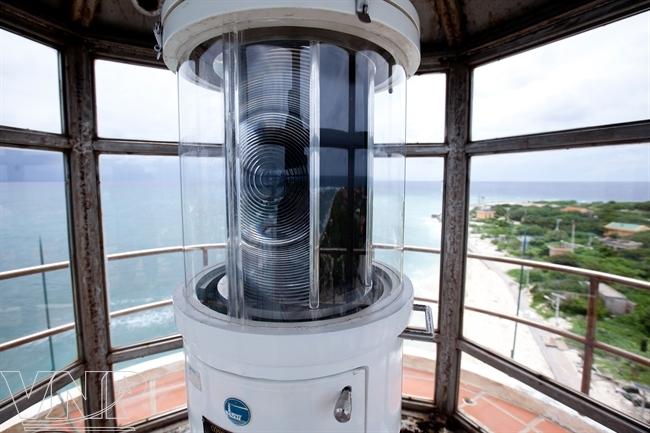 The lamp of the lighthouse has rotation cycle of 6 times/minute. 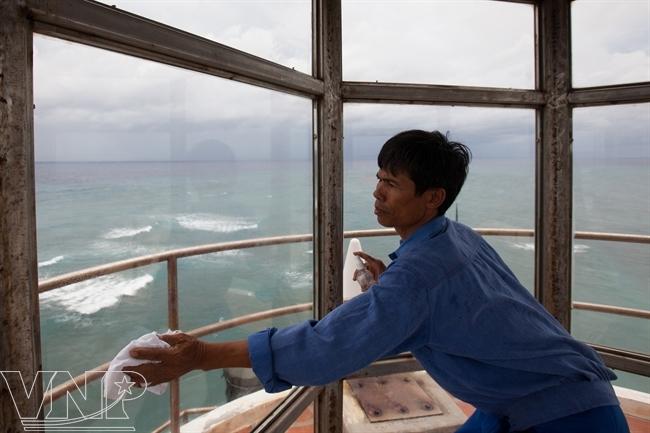 The lighthouse workers on Truong Sa Lon Island have to climb in the lighthouse to perform maintenance. 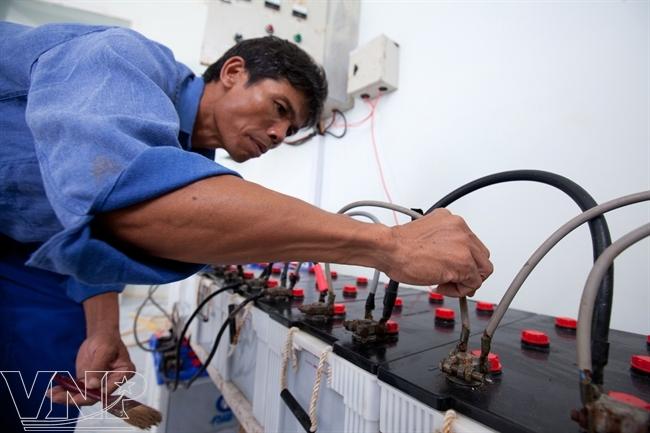 A system of batteries provides energy for the lighthouse on Truong Sa Lon Island. 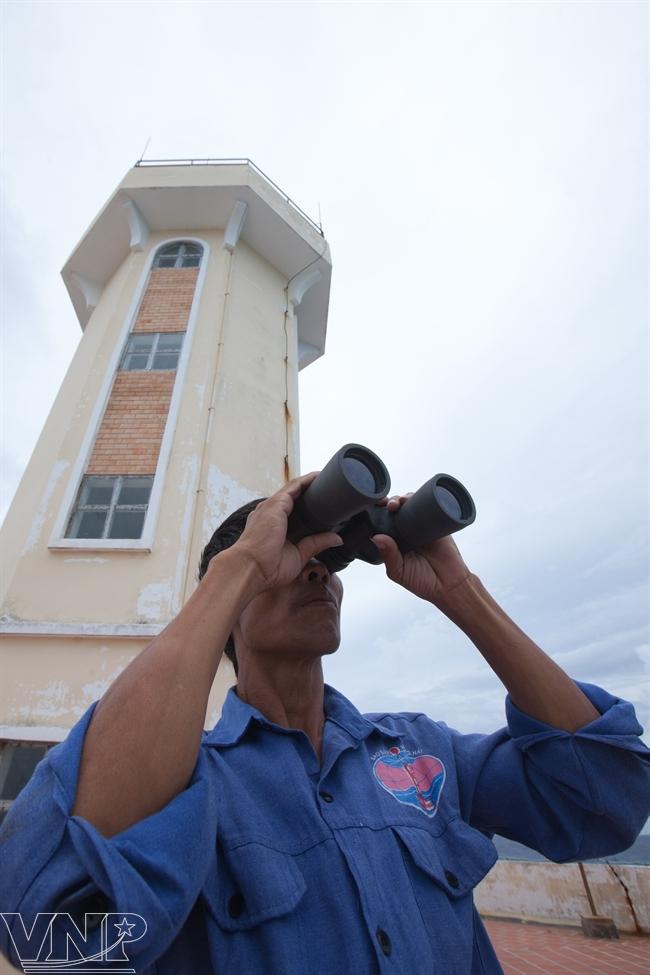 Besides the task of guiding ships, the lighthouse workers are responsible for observing and taking notes of marine activities in the sphere of control of the lighthouse station. 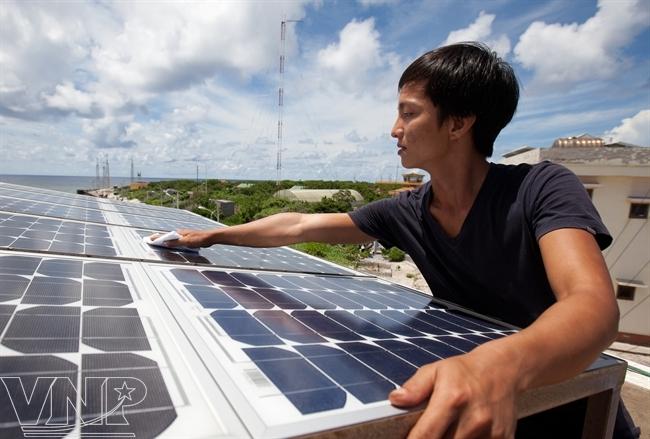 Along with grid electricity, a system of solar power is used on the island. 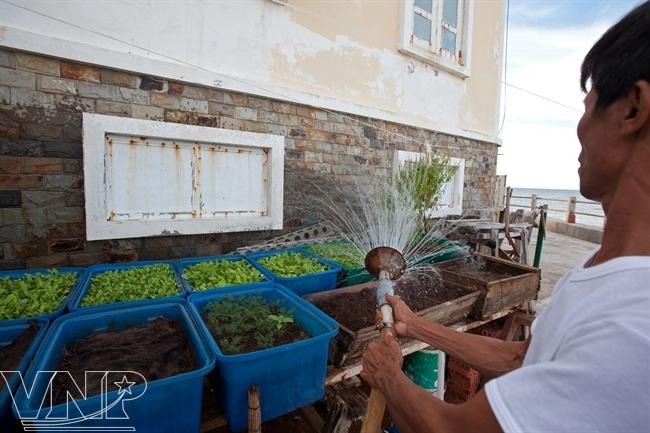 Different kinds of vegetables are grown by the lighthouse workers on Truong Sa Lon Island. 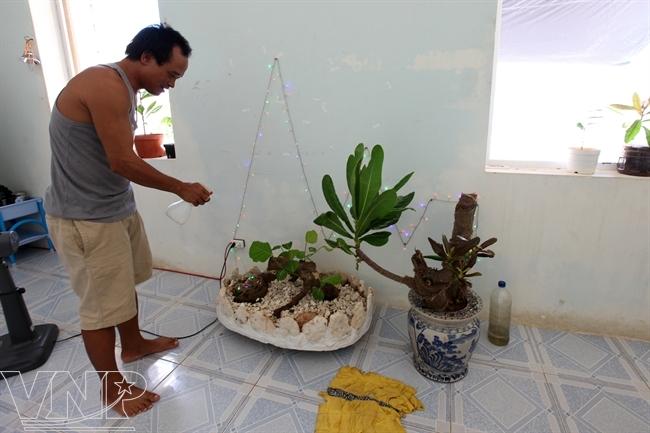 |
| Relaxing during free time. |
 Â
Â